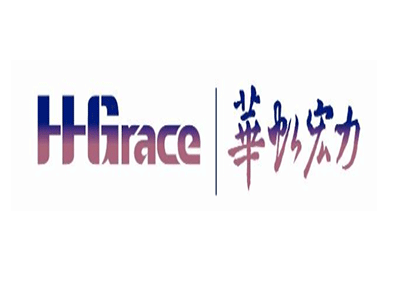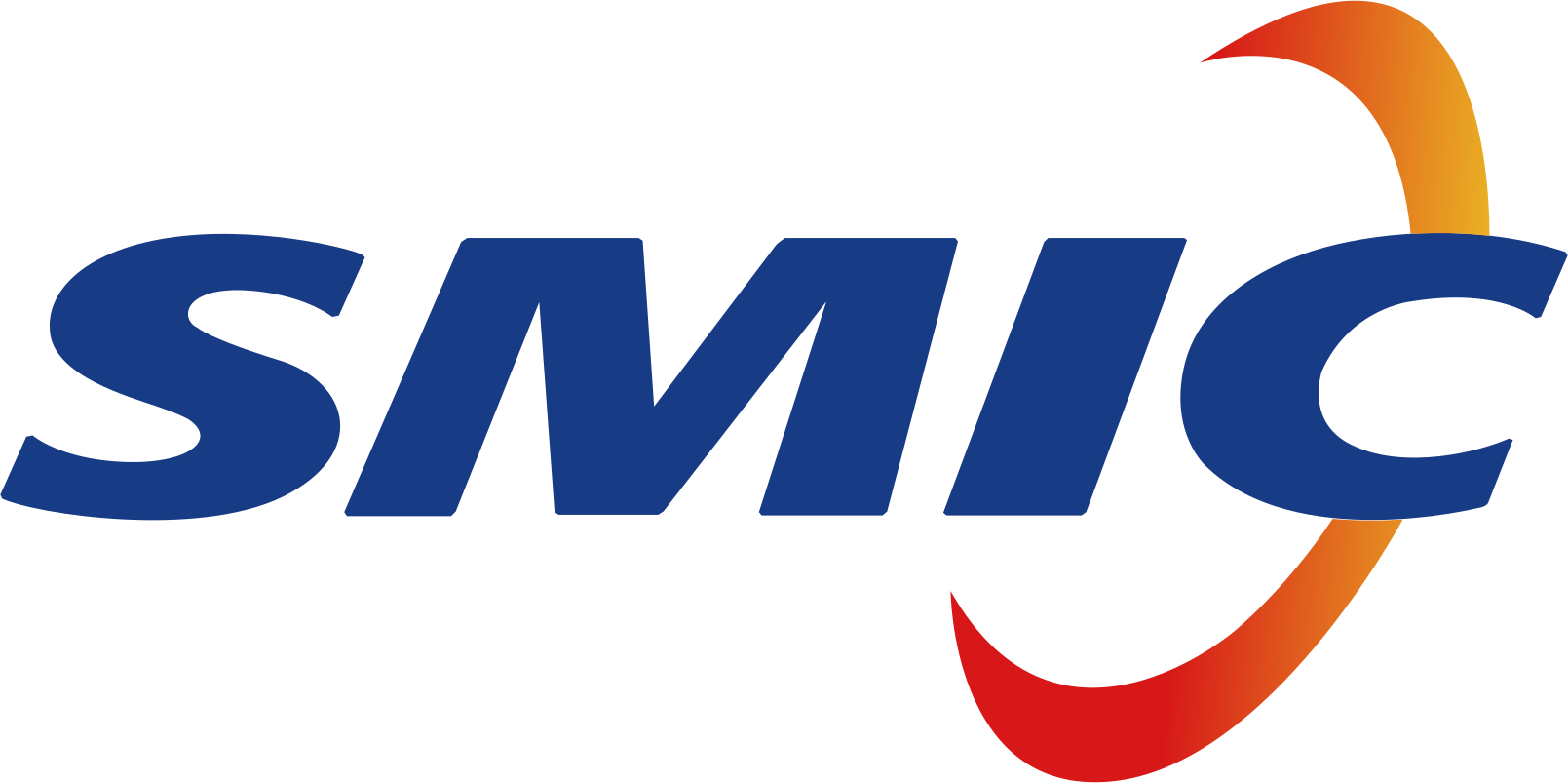HUA HONG SEMI(01347)
Search documents
华虹公司:关于聘任高级管理人员的公告

Zheng Quan Ri Bao· 2026-02-13 13:28
(文章来源:证券日报) 证券日报网讯 2月13日,华虹公司发布公告称,公司董事会于2026年2月13日作出决议,委任葛茂晖先 生担任公司的执行副总裁。 ...
智通港股通活跃成交|2月13日





智通财经网· 2026-02-13 11:02
Group 1 - Tencent Holdings (00700), Alibaba-W (09988), and Meituan-W (03690) ranked as the top three companies in terms of trading volume on the Hong Kong Stock Connect (southbound) on February 13, 2026, with transaction amounts of 4.301 billion, 3.680 billion, and 3.169 billion respectively [1] - Tencent Holdings (00700), Alibaba-W (09988), and Meituan-W (03690) also led the trading volume on the Shenzhen-Hong Kong Stock Connect (southbound) with transaction amounts of 3.563 billion, 2.870 billion, and 1.460 billion respectively [1] Group 2 - The top ten active companies on the Hong Kong Stock Connect (southbound) included Tencent Holdings (00700) with a net buy of 1.426 billion, Alibaba-W (09988) with a net buy of 1.143 billion, and Meituan-W (03690) with a net sell of 0.368 billion [2] - On the Shenzhen-Hong Kong Stock Connect (southbound), Tencent Holdings (00700) had a net buy of 0.837 billion, Alibaba-W (09988) had a net buy of 1.156 billion, and Meituan-W (03690) had a net buy of 0.611 billion [2]
华虹半导体委任葛茂晖为执行副总裁

Zhi Tong Cai Jing· 2026-02-13 10:00
华虹半导体(01347)公布,董事会于2026年2月13日作出决议,委任葛茂晖先生担任公司的执行副总裁。 ...
华虹半导体(01347)委任葛茂晖为执行副总裁

智通财经网· 2026-02-13 09:59
智通财经APP讯,华虹半导体(01347)公布,董事会于 2026 年 2 月 13 日作出决议,委任葛茂晖先生担任 公司的执行副总裁。 ...
华虹半导体(01347.HK)委任葛茂晖为执行副总裁

Ge Long Hui· 2026-02-13 09:57
格隆汇2月13日丨华虹半导体(01347.HK)公布,董事会于2026年2月13日作出决议,委任葛茂晖担任公司 的执行副总裁。 ...
北水动向|北水成交净买入202.19亿 北水抢筹港股ETF及科技股 全天加仓盈富基金(02800)超36亿港元
智通财经网· 2026-02-13 09:57
智通财经APP获悉,2月13日港股市场,北水成交净买入202.19亿港元,其中港股通(沪)成交净买入114.77亿港元,港股通 (深)成交净买入87.43亿港元。 北水净买入最多的个股是盈富基金(02800)、阿里巴巴-W(09988)、腾讯(00700)。北水净卖出最多的个股是长飞光纤光缆 (06869)、中海油(00883)。 | 盈富基金 | 11.80亿 | 188.87万 | 11.82亿 | | --- | --- | --- | --- | | HK 02800 | | | +11.78亿 | | 南方恒生 ... | 11.51亿 | 2782.07万 | 11.79 亿 | | HK 03033 | | | +11.24 乙 | | 小米集团-W | 8.00亿 | 2.98亿 | 10.98 亿 | | HK 01810 | | | +5.02 乙 | | 长飞光纤 ... | 4.90亿 | 4.56亿 | 9.461乙 | | HK 06869 | | | +3338.34万 | | :: 洪烟田中 | 3.76亿 | 5.19 乙 | 8.95亿 | | HK 00883 | | | ...
华虹半导体(01347) - 海外监管公告 -《华虹半导体有限公司关於聘任高级管理人员的公告》

2026-02-13 09:49
香港交易及結算所有限公司及香港聯合交易所有限公司對本公告的內容概不負責,對其準確性 或完整性亦不發表任何聲明,並明確表示,概不對因本公告全部或任何部份內容而產生或因倚 賴該等內容而引致的任何損失承擔任何責任。 HUA HONG SEMICONDUCTOR LIMITED 華虹半導體有限公司 (於香港註冊成立之有限公司) (股份代號:01347) 海外監管公告 本公告乃根據《香港聯合交易所有限公司證券上市規則》第13.10B條而作出。 茲載列華虹半導體有限公司(「本公司」)於上海證券交易所網站刊發的《華虹半導 體有限公司關於聘任高級管理人員的公告》,僅供參閱。 承董事會命 華虹半導體有限公司 董事會主席兼執行董事 白鵬先生 中國上海,二零二六年二月十三日 白鵬 (董事會主席兼總裁) 非執行董事: 葉峻 孫國棟 陳博 熊承艷 獨立非執行董事: 張祖同 王桂壎太平紳士 封松林 2 1 於本公告日期,本公司董事分別為: 執行董事: 华虹半导体有限公司 关于聘任高级管理人员的公告 本公司董事会及全体董事保证本公告内容不存在任何虚假记载、误导性陈述 或者重大遗漏,并对其内容的真实性、准确性和完整性依法承担法律责任。 华虹 ...
华虹公司(688347.SH):委任葛茂晖担任执行副总裁
Ge Long Hui A P P· 2026-02-13 09:29
格隆汇2月13日丨华虹公司(688347.SH)公布,公司董事会于2026年2月13日作出决议,委任葛茂晖先生 担任公司的执行副总裁,简历如下: 葛茂晖先生,男,61岁。现任公司、上海华虹宏力半导体制造有限公司执行副总裁,分管质量与测试相 关业务。葛茂晖先生于二零二六年一月加入本公司,拥有超过30年的半导体行业相关工作经验,曾历任 美国英特尔公司主任工程师与良率项目经理、MIRADIA科技良率与可靠性总监、iUSE运营总经理、 PACIFIC BIOSCIENCES 质量总监、CYPRESS半导体全球客户与产品线质量总监、长江存储科技质量 与可靠性高级总监及武汉新芯质量与可靠性负责人、MARVELL半导体质量与可靠性副总裁等职务。葛 茂晖先生拥有复旦大学物理学学士学位、美国夏威夷大学固态物理学博士学位,并顺利完成美国伊利诺 伊大学厄巴纳-香槟分校博士后研究工作。 ...
华虹公司(688347) - 关于聘任高级管理人员的公告

2026-02-13 09:15
| 股代码:688347 A | A | 股简称:华虹公司 | 公告编号:2026-014 | | --- | --- | --- | --- | | 港股代码:01347 | | 港股简称:华虹半导体 | | 华虹半导体有限公司 关于聘任高级管理人员的公告 本公司董事会及全体董事保证本公告内容不存在任何虚假记载、误导性陈述 或者重大遗漏,并对其内容的真实性、准确性和完整性依法承担法律责任。 华虹半导体有限公司(以下简称"公司")董事会于 2026 年 2 月 13 日作出 决议,委任葛茂晖先生担任公司的执行副总裁,简历如下: 葛茂晖先生,男,61 岁。现任公司、上海华虹宏力半导体制造有限公司执 行副总裁,分管质量与测试相关业务。葛茂晖先生于二零二六年一月加入本公司, 拥有超过 30 年的半导体行业相关工作经验,曾历任美国英特尔公司主任工程师 与良率项目经理、MIRADIA 科技良率与可靠性总监、iUSE 运营总经理、 PACIFIC BIOSCIENCES 质量总监、CYPRESS 半导体全球客户与产品线质量总 监、长江存储科技质量与可靠性高级总监及武汉新芯质量与可靠性负责人、 MARVELL 半导体质量与 ...
美银证券:华虹半导体经营亏损持续 重申“跑输大市”评级
Zhi Tong Cai Jing· 2026-02-13 09:11
该行表示,华虹整体利润率或将持续受压,因公司持续扩产(新Fab9B将增设5万片以上12吋月产能,主 要在2026年至2028年建设),导致折旧成本上升。该行预期公司经营亏损将延续至2026年上半年,随后 于2026年下半年及2027年上半年录得低单位数经营利润率。因此,其2026年及2027年股本回报率或仍处 于3%至4%的低位,对比中国半导体代工及封测同业为5%至10%。 美银证券发布研报称,华虹半导体(01347)2025年第四季业绩符合预期,惟经营亏损持续。公司公布第 四季销售额为6.6亿美元(按季增长4%,同比增长22%),处于指引上限;毛利率为13%,符合12%至14% 的指引区间,惟较第三季的13.5%未见明显改善。该行预期2026年将恢复派息,美银证券将华虹目标价 由59港元上调至61港元,仍然基于2026年预测每股账面净值3.9美元的2倍计,重申"跑输大市"评级。 华虹经营亏损率由第三季的2%扩大至第四季的7%,该行认为很可能由于新Fab9的营运开支上升。不包 括少数股东权益/包括少数股东权益的净利润分别为亏损约1,900万美元及净利润约1,700万美元,第四季 每股盈利1美仙。 ...

